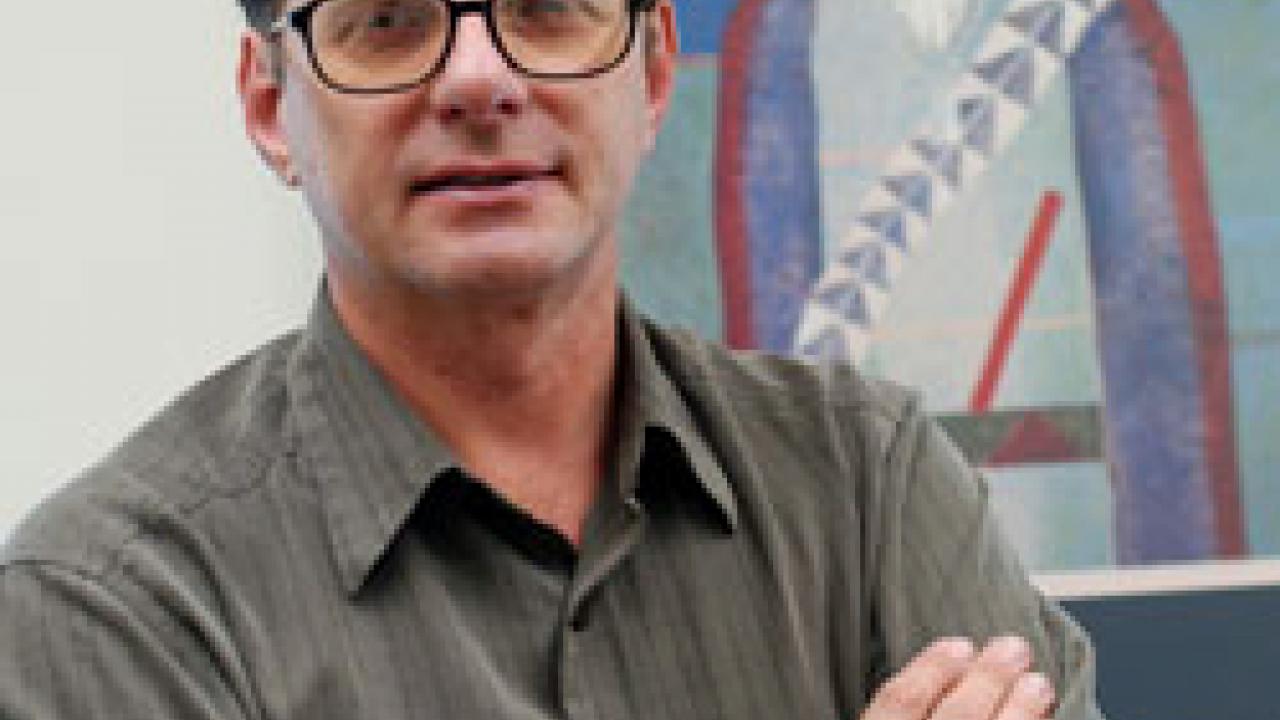You've heard of UC's Cooperative Extension. Now it's time to make room for UC Davis' "cultural extension."
This research and cultural consulting service is already a going concern at the Pacific Regional Humanities Center in Voorhies Hall under the direction of Georges Van Den Abbeele, a professor of French and humanities.
In the two years since UC Davis first received funding from the National En-dowment for the Humanities, Van Den Abbeele has put into motion a number of exploratory projects throughout Northern California to provide cultural outreach to the public.
Last fall, the center officially joined the Library of Congress' American Folklife Center as a regional partner for the Veterans History Project. Thanks to mostly UC Davis student efforts, the center has collected and archived video and audio tapes and created hard-copy transcripts, all accessible to the public. The archive is soliciting oral histories on a wide variety of subjects beyond veterans and has plans to expand even more in the next few years.
During the same two-year period, Van Den Abbeele has created a network of connections between scholars, state officials, non-profit organizations, and others interested in historical and cultural preservation.
"My plan is to connect UC Davis, especially our students, throughout the region in preserving our cultural heritage," Van Den Abbeele says.
A cadre of UC Davis students provides much of the horsepower behind the Pacific Regional Humanities Center's initial work. This quarter Van Den Abbeele is teaching the first of several oral history seminars and will be offering independent study credits to graduates once they are in the field and producing histories. His students are learning important theoretical issues about cultural research, including human research protocols. They will also focus on methods, such as interviewing techniques, transcript preparation and research paper writing.
Van Den Abbeele is also constructing a solid phalanx of UC Davis faculty for this cultural extension service that includes not just those in the humanities and social sciences but many in the environmental sciences.
Several regional projects have been launched through Van Den Abbeele's initiative:
- Angel Island Immigrant Station: Perhaps the most developed project is a collaboration with the Angel Island Immigrant Station Foundation. With a few UC Davis interns placed in the Bay Area and another dozen students on campus in training, Van Den Abbeele is preparing an oral history and historical preservation project that will collect stories from living immigrants who filtered through the West Coast's "Ellis Island" until 1940, when the federal immigration station was closed.
One UC Davis intern has been working at the National Archives and Records Administration in San Bruno to help organize, catalog and preserve documents related to the Angel Island archives. Another is working at Angel Island to help locate surviving immigrants and build a database. Van Den Abbeele seeks students who can help work with elderly immigrants whose first languages will range from Cantonese to Punjabi and Russian.
- Sutter Buttes: Now that the Sutter Buttes, an isolated cluster of small mountains in the north Sacramento Valley, have been designated as a future state park, the Pacific Regional Humanities Center is helping the state collect the buttes' cultural history and coordinate various research projects.
Through the center's guidance, UC Davis students will be working with the Middle Mountain Foundation to collect oral histories of both the landowners and Native Americans in the area. In addition, a team of wildlife biologists, geologists, archeologists, scholars interested in issues of nature and culture, and other UC Davis faculty will be surveying the buttes for possible projects.
- Sacramento River Delta: In collaboration with a number of local agencies, the regional humanities center is working on a project to designate the delta as a national heritage waterway. With this designation from the National Parks Service, the delta would get federal funding as the second such waterway west of the Mississippi, Van Den Abbeele says.
"If the delta were to get the designation, I can imagine UC Davis offering our cultural extension services in a number of ways, such as collecting history all through the area up the 'rivers of gold' -- the American, Yuba and upper Sacramento," Van Den Abbeele says. "I can see our humanities faculty getting involved in working on the delta's cultural history, our scientists involved in environmental management, and, of course, our students pursuing all kinds of documentary projects."
- California Cultural and Historical Endowment: This new state agency, funded through voter-approved funds for cultural preservation, has $180 million earmarked for the physical preservation of California landmarks.
Agency officials are working with Van Den Abbeele and other UC Davis faculty members to develop grant guidelines and suggest lists of appropriate reviewers for such preservation grants. Reviewers will likely run the gamut from paleontologists and oceanographers to military historians and ethnic culture experts.
Two UC Davis students are also working as center interns with the state agency, which is housed at the California State Library across the street from the State Capitol in Sacramento.
- Japanese American internment camps: A UC Davis history major is interning through the center at Manzanar National Historic Site, helping the interpretive staff work on the former internment camp's archives. Van Den Abbeele hopes to expand the number of internships working with the National Parks Service on these kinds of projects.
Van Den Abbeele says UC Davis is in a perfect place to build a reputation throughout the region for cultural extension. Using the model of collaboration constructed here, he will be working with universities in the other Pacific states to spread the idea.
Media Resources
Susanne Rockwell, Web and new media editor, (530) 752-2542, sgrockwell@ucdavis.edu
